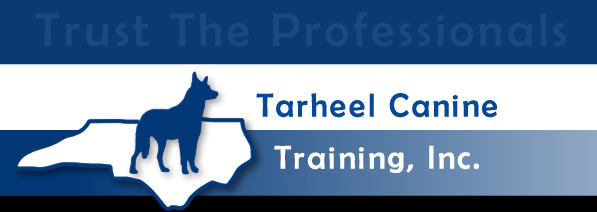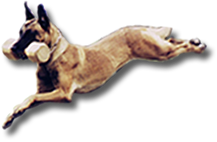Something I have been thinking about lately is washing dogs out of a training program. Often times, as a vendor of green dogs, we get dogs returned to us for various reasons. Many times the dog is actually too much for the handler, and while the dog is very strong for the street, the dog is too dominant for the handler. I can’t tell you how many times I am asked for a super tough dog, and invariably that is the one that is coming back. I worked a dog from Holland named Ricardo v. Natuurzicht PH1 PSA 3. Before he came to me at 4 years old after competing in the 1999 Dutch Nationals, he put 3 handlers in the hospital, and one on permanent disability. He was a tough dog. So if you ask me for a tough dog, you are going to get one. He was tough and dominant. One thing that good dogs that are mature (very important to note I say mature) all have some of is dominance. It is like arrogance in a star athlete. Most star athletes own their sport, and when your dog owns his work, he is a little self centered (dominant if you will allow the analogy).
The typical response of most police training is to fight dominance fire with fire. You will hear a lot of things like, "that dog needs to be shown who is boss." The problem with this is that once you go there, if the dog doesn’t back off immediately, you are likely to spawn a physical altercation that you best be in a position to win. Too many times, when this all blows up, the handler is not prepared to carry through with showing who is boss, and it is the person who punks first, not the dog. Personally, I prefer not to go toe to toe with a dog if I don’t have to. I prefer to deal with dominance issues dfferently. I prefer to out think the dominance rather than out muscle it. I think this topic deserves its own article, so I will deal with this isssue in another post. In the 9 or so years I owned Ricardo (100lbs working weight) we never had a physical fight (thank god) – so I know a little something about working a hard, dominant and tough dog.
Other times we have dogs returned because the dog is too handler soft for the training method. A young GSD that is drivey and has good environmentals might be a little soft. After all, we are accepting dogs into training earlier and earlier because of the demand. Dogs can be precocious in drive and nerve, but socially (pack order wise) they will be a little underdeveloped to deal with a strong personality like that of a cop. This dog needs to be built up in social dominance, just not so far as to challenge the handler too much. Instead, what normally happens is the training method is one that is compulsive in nature, centered around a lot of correction, and the pressure is too much for the more handler soft dog who just wants to avoid all the pressure – so he shuts down a lot. This is often interpreted as the dog being weak, but that isn’t always the case. The untrained eye of a trainer who just repeats what he was taught 20 years ago will never see that this dog needs more motivation to get him through his adolescence and less compulsion, and he will probably be as tough as the 18 month old dog next to him in class. Where do you think that 18 month old came from? He was once a less confident adolescent.
Trainers in general need to expand their understanding of younger dogs – the furure is in younger dogs, and the successful trainers will be the ones not who can test and reject 40 dogs at the vendor’s kennel because they are looking for perfection – but those that have the talent to recognize how to make something out of the more raw material of younger adolescent dogs. Let me assure you this is the future, The days of every dog going into class being titled or a minimum of 18 months old are past. Demand draws out more and more 10 month old dogs who are high drive and environmentally comfortable, but never forget that these dogs are not adults, and how they react to their handlers is more or less the way a puppy will react. You can pressure them in bitework like crazy, but their handler can hurt their feelings easily.
During the early weeks of a K9 school, the dog will react in the extreme of his social state (dominant or relatively submissive) as you work obedience and try to gain control of his behaviors. Most schools I know of (except Tarheel Canine) start with obedience – and compulsive obedience at that – and so the relationship with the handler is defined by the handler trying to impose his will (dominance) on the dog. I suggest that if you do drive work first in the weeks when you are bonding, the dog and you will have an even better relationship. Leave obedience for later when you have a relationship with the dog. This will help build the softer dogs, as their activities leaqd to more and more wins and thus confidence, and it will help you relate better and establish a bond with the stronger more dominant dog without getting into a battle of wills. Obedience by its nature sets up that conflict when done compulsively.
Jerry Bradshaw
"Its what you learn after you know it all that Matters" – Earl Weaver

